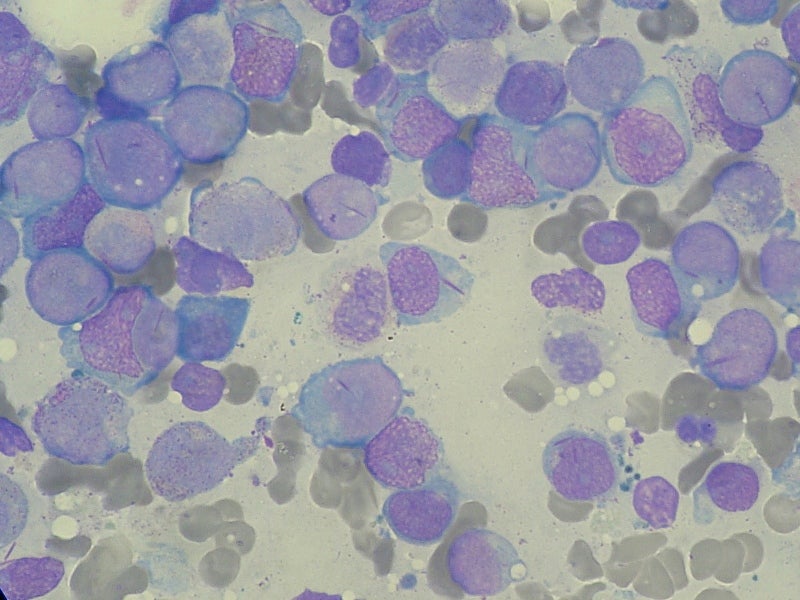
Actinium Pharmaceuticals has started dosing patients in the second cohort of its Phase I trial studying Actimab-A in combination with CLAG-M for the treatment of patients with relapsed or refractory acute myeloid leukemia (AML).
The trial features a 3+3 dose escalation study design and is being conducted at the Medical College of Wisconsin (MCW) in the US.

Discover B2B Marketing That Performs
Combine business intelligence and editorial excellence to reach engaged professionals across 36 leading media platforms.
It is designed to examine safety and tolerability, as well as response and bone marrow transplant (BMT) rates. Progression-free survival and overall survival (OS) rates are also expected to be studied.
Patients are being treated with salvage chemotherapy regimen CLAG-M followed by a single dose of Actimab-A. CLAG-M features cladribine, cytarabine, filgrastim, and mitoxantrone.
The trial’s first dose cohort saw patients treated with 0.25uCi/kg of Actimab-A, with no dose-limiting toxicities (DLTs) being observed among patients.
Results from this cohort led to the Institutional Review Board (IRB) at MCW approving the second dosing stage, where patients will receive 0.50uCi/kg of Actimab-A.

US Tariffs are shifting - will you react or anticipate?
Don’t let policy changes catch you off guard. Stay proactive with real-time data and expert analysis.
By GlobalDataIf no DLTs are observed in the second cohort, three patients will receive the study drug and the trial will progress to the third and final cohort to examine Actimab-A at a dose of 0.75uCi/kg.
Actinium Pharmaceuticals chief medical officer Dr Mark Berger said: “Chemotherapy and external radiation are routinely used in combination in several cancers but despite being radiation sensitive, AML is not treated with external radiation given its diffuse nature.
“Therefore, the ability to deliver radiation internally in a targeted fashion to AML cells with potency and tolerability gives us great confidence in our ARC approach.
“In addition, this trial is particularly important as AML patients with relapsed or refractory disease face a poor prognosis with limited treatment options.”





